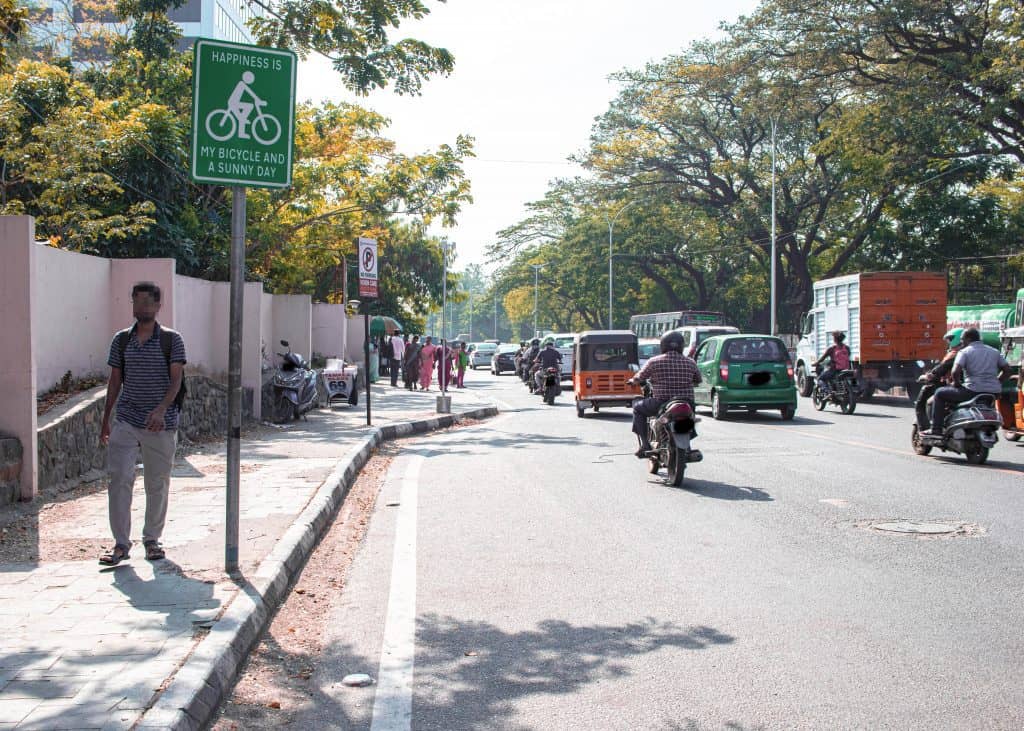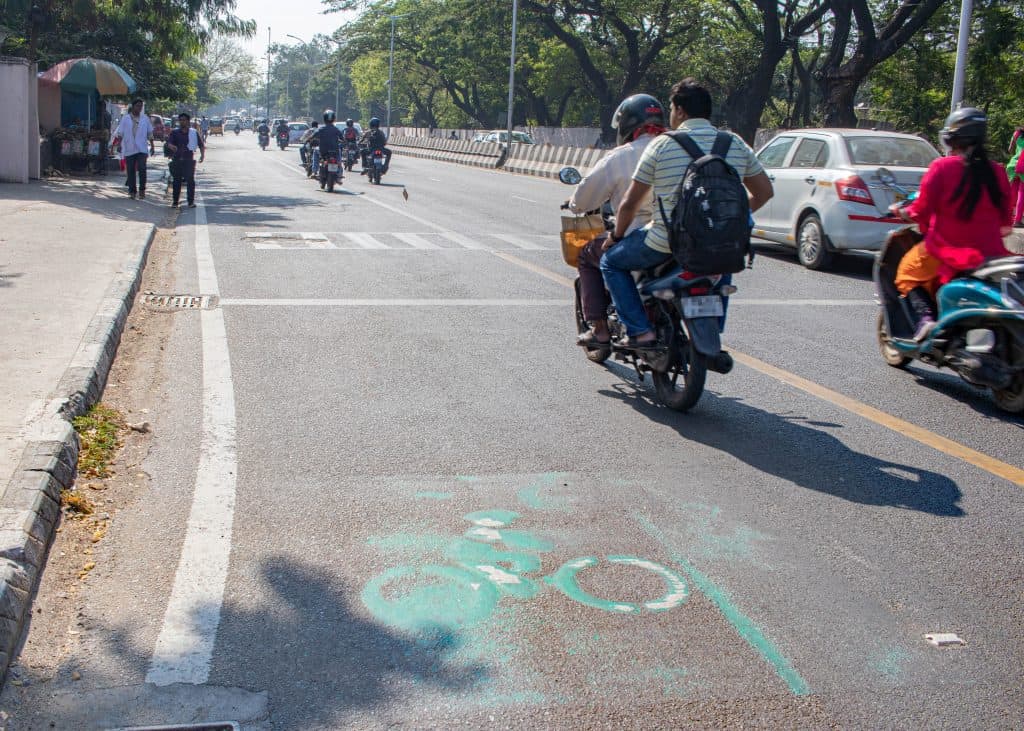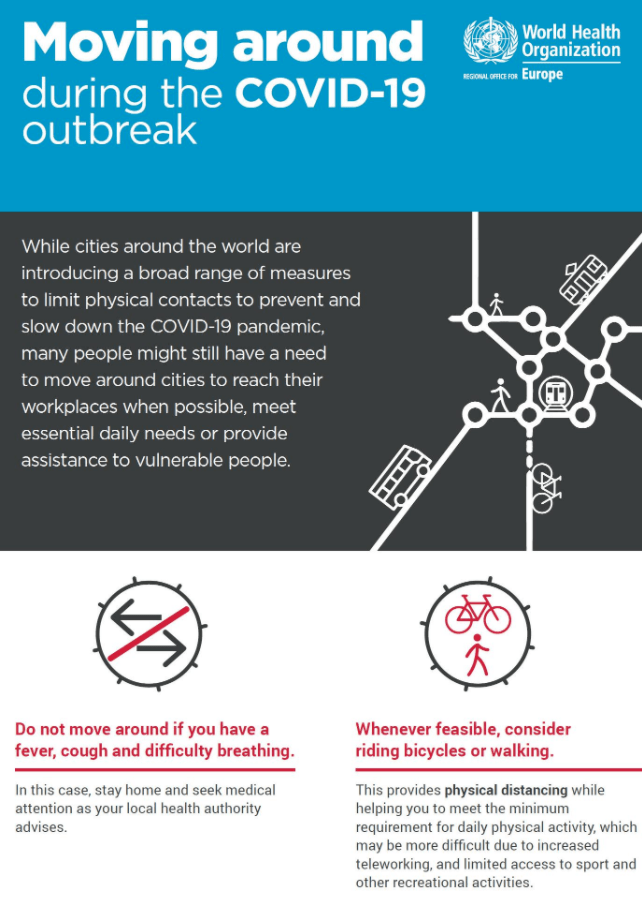The mobility sector will witness a dramatic change post-lockdown. With physical distancing and cleanliness being emphasised, the number of people opting for personal transport could well go up in Chennai as in other cities.
While we have to learn to live with the virus we also need to ensure safe social distancing; given the likely crowds and surge in use of private vehicles, I wonder if there will be enough space for practising social distancing.
The biggest problem post-lockdown is going to be gridlock. Studies in the past have shown that that Indians, on average, spend 7% of their day commuting, which could go up further once the lockdown is lifted. The surge in motorised vehicles is also going to bring back the normalcy of pollution, which in turn is going to affect the respiratory system making us less immune and more vulnerable to COVID-19.
All of these taken together provides a window of opportunity for cycling as the ideal solution.
Chennai’s chequered history with cycling efforts
Two projects from the recent past, bicycle lanes at KK Nagar and a 13-km lane along Sardar Patel Road, if they had come to fruition in the way intended, would have helped cycling in the city. Their stated aim was to improve the cycling infrastructure, assure safety and provide the much needed boost that would encourage more people to take to cycling.

The projects however failed to meet their ends, due to challenges like lack of maintenance planning, creation of a lot of pits and the lanes being geared towards fitness enthusiasts instead of regular commuters. Ideally, lanes on Anna Salai and OMR would have helped office-goers commute to work, thereby reducing their reliance on personal motor vehicles.

COVID derails plans
Just before the lockdown, the Greater Chennai Corporation (GCC) initiated more people-centric projects such as the pedestrian plaza and mega streets. One of the many planned pedestrian plazas has been inaugurated.
The mega streets project is aimed at redesigning the city’s roads through the development of networks of cycling and walking and improved access to public transport. Unfortunately, the project has been stalled due to the lockdown.
The lockdown could have been used to run pilot experiments by promoting walking and cycling with expanded pop lanes for this purpose. However, it turned out to be a missed opportunity.
Pedalling forth
All is not lost, however, as in the time left, the Greater Chennai Corporation can organise a campaign to promote cycling as a healthier option. When many are expected to hit the streets after the lockdown and there could be a greater preference for the use of private vehicles, a timely campaign to position cycling as a viable option could do wonders.
An effort by local authorities to this effect would reach lakhs of citizens who are especially tuned in to guidelines and communication from the government during the pandemic. This could be used as an opportunity to inspire the next generation of cyclists in the city.
As the rules are being relaxed and public modes of transportation are taking various measures to ensure social distancing, public bike-sharing can be expanded with proper sanitizing strategies. Corporates, schools and colleges can be given a mandate to encourage the use of bicycles for people around the zone within a radius of not more than 5 km.
What should the government do?
- A campaign for a healthy lifestyle can help seed the thought among people to always ride a bicycle for shorter distances.
- Supportive temporary infrastructure can ensure that they move safely amidst the rush.
- Further, the government can expedite approvals for pending bicycle lane projects.
- Also mandating corporates, schools and colleges to encourage the use of bicycles would help the people to take up cycling.
- Incentivising the use of bicycles would also be an encouraging factor in all the above sectors.
Many cities and countries have promoted cycling during the lockdown as a healthy alternative.
- In India, Bengaluru police commissioner started allowing cycling and cyclists during and post lockdown.
- Kerala went a step further to issue a government order, which permits walking and cycling with no question.
- The western nations are far ahead in the race to ensure a safe and socially-distant society for their citizens providing pop up bicycle lanes for an average of 30 kms. Berlin, Bogota, Spain, Italy, France, Brussels, Netherlands, New York, San Francisco are the ones in this race.
- Amidst these, the UK went ahead to provide a 2 billion pound investment over the period of five years which includes an immediate investment of 250 million pounds for walking and cycling infra in their city.
- The UK has an immediate investment of 250 million pounds and of 2 billion pound over the period of five years to prioritise pedestrians and cyclists during and post lockdown.
Also, with only 50% capacity use of public transportation, what about those who cannot afford a private vehicle? Cycling once again is the best answer to this problem.

World Health Organization recommends cycling as the ideal mode of commute while maintaining physical distancing and getting necessary physical activity during COVID-19.
If you want to cycle as the primary mode of commute:
- Organise yourself to leave at least 30 mins prior to your scheduled time on a motorised vehicle
- Always take necessary precautions for COVID before and after the commute
- Keep left and ride patiently
- Always carry your own bottle of water
- Do not stop anywhere in between
- You can carry a sanitizer to wipe off the holding areas on your bicycle
- Keep your bicycle out of your living place like a car or a motorbike. Do not take it inside.
During this lockdown, we realised that nature has healed itself to a large extent from the destruction that we have caused. One of the main reasons that it could do so was the drastic reduction in motorised transport on our roads. Now, if people are just going to bounce back to normalcy and go back to their cars and vehicles (in fact more avidly, to avoid the health risks associated with public transport), the gains made during the lockdown could be lost forever. Let us stop that from happening.